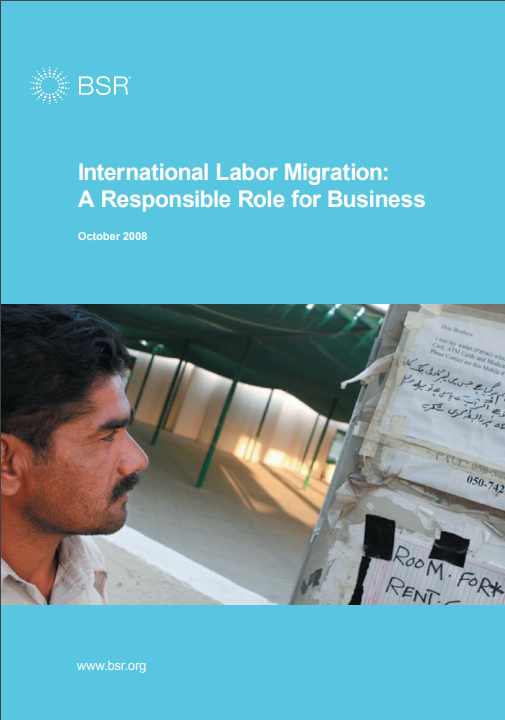In today’s globalized economy, the issue of international labor migration in supply chains is one of the most critical – yet largely unexplored – issues for our member companies and all businesses operating globally.
Labor migrants now represent roughly 190 million people, or about 3 percent of the world population. They are an increasingly vital part of the global workforce. Despite immense attention to general working conditions in global value chains, little specific attention has been given to this large and vulnerable segment of the workforce. BSR sees an important opportunity to increase visibility into where migrant workers come from, how they are recruited, the terms of their employment, the rights they are afforded in the countries where they work, and ultimately, steps companies can take to protect the migrant workers present in their supply chains.
This report launches a two-year BSR initiative, funded by the John D. and Catherine T. MacArthur Foundation, to ensure that migrant workers in global supply chains – particularly those migrating from one emerging economy to another – are treated with dignity and respect.

